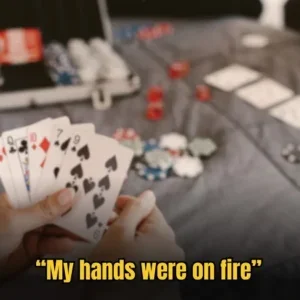This is a user submission to IRL. We do not edit the article beyond ensuring that it complies with the site’s format. We make no guarantees of its accuracy, grammatically or otherwise. The opinions expressed are solely that of the author, and does not necessarily represent the opinions of IRL or its affiliates. Users are advised to read the article at their own discretion.

Let me start off with a personal story. I once got someone fired and this person didn’t even know it was coming.
I was a young and inexperienced manager then, and one of my staff was not performing. It was extremely difficult for me to just tell her off bluntly. Instead, I made the mistake of dropping hints with the hope that she will eventually “get it”.
I used the sandwich technique where I would say all the good things about her and immediately follow through with what she should improve on. And when this person didn’t perform again, I would turn up my Hint-O-Meter and dropped stronger hints. Suffice to say, this technique didn’t work.
Finally, the rubber hits the road. My big boss confronted this non-performing staff and fired her. This poor soul was caught off guard. “I thought I was doing ok with some areas to improve on. But letting me go?!” she exclaimed exasperatedly. I can still remember the disappointed look she gave me when she said those words.
This incident has thought me to have the courage to be direct in my communication especially in confrontations. I’m still on this learning journey. I still find it difficult to have such conversations at times. But I’m more mindful now and have taken responsibility to shift my communication style to be more honest, clear and direct.
Why is it important to be direct?
It’s really about being true to yourself. By having truthful conversations, you’re actually demonstrating respect not only for others, but for yourself too. You’re actually freeing yourself. If you speak what you feel, you’ll be removing anxiety built up overtime and guess what, the person you’re speaking to will trust you even more. You’re putting forward your true self and not wearing a mask. Plus, it saves you and others time, money and energy.

If so, why are we not doing it?
Because giving difficult feedback or letting someone go in a job is really hard to do. In such situations:
- We fear the rejection and embarrassment.
- We fear we will not liked.
- We are afraid of the conflict that we may cause and thus want to avoid it altogether.
- We fear of hurting that person (Ironically, not being direct with them would be more hurtful in the long run)
How can we be direct then, without coming off like a complete @$$hole?
- Don’t do it in the heat of the moment. Because it would usually end up as a personal attack. It’s hurtful. Walk away and calm down first.
- Keep it concise and clear. Avoid stringing many sentences together. Remember, less is more.
- Watch your tone and non-verbal cues (body movements, facial expressions etc). Because how you say something screams volumes compared to the actual words that are coming out of your mouth. In essence, how you deliver a message makes a world of difference.
- Choice of words. Use “I” and avoid speaking in terms of “you” (Say “I am upset with how the situation was handled.” rather than “You didn’t handle the situation well.”). Avoid “always” and “never” (“You’re always late” “You never pay attention to the details”).
- Say it in person. Video call is second best and voice call, third. Avoid having such difficult conversations via messaging or emails.
- Focus on the behaviour and not the person. Avoid “Your idea would not work.” Try instead, “This method isn’t the best approach. Can we explore some other ideas?”
In conclusion, mean what you say and say what you mean.
More from Real Skills
How I Saved Almost RM50,000 On Buying My First Car
Here's how this Malaysian man with a RM3,500 salary saved RM50,000 on his first car.
Angry M’sian Boss Demands Unpaid Overtime Over Raya, Causes 9 Staff To Quit
An anonymous employee at a local SME shares how a bad-tempered boss eventually caused 9 staff to quit before Hari …
I Studied In Chinese School As A Malay Boy, Here’s What I Learnt
Every time I used Mandarin outside of school, family members would come up to me at gatherings and ask me …
















